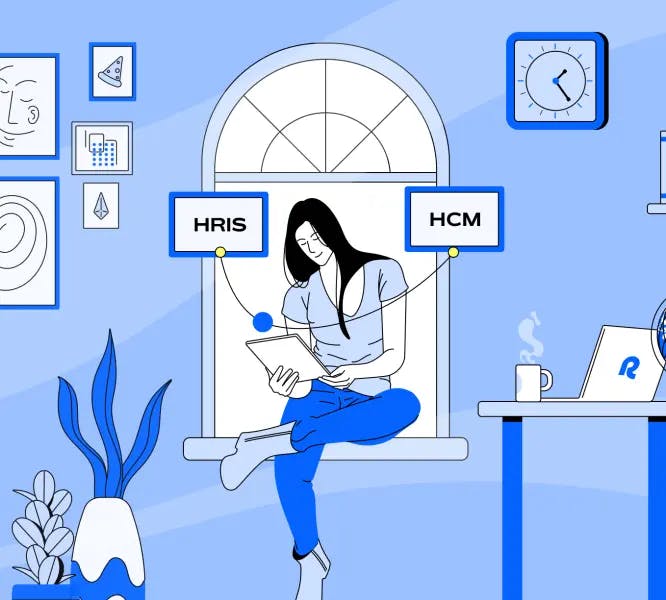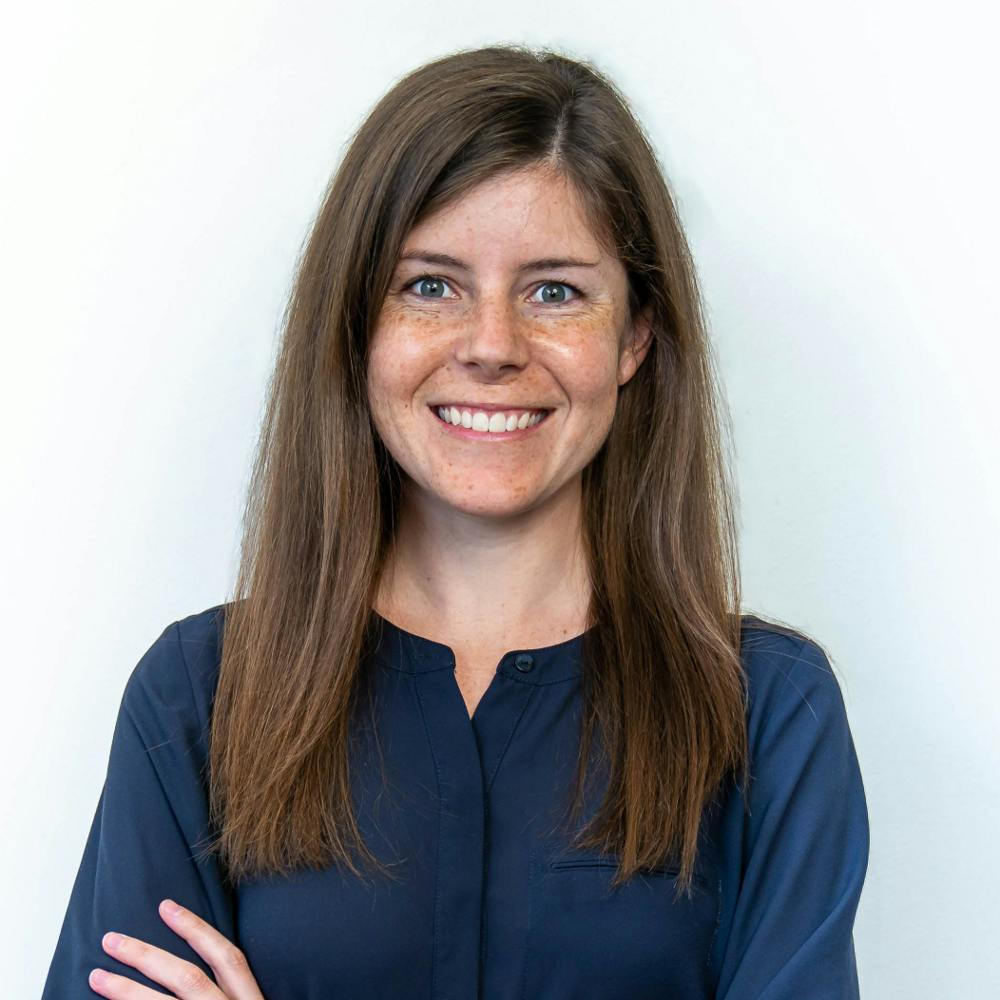
Global HR — 10 min

Podcast — 11 min
Welcome to Remote Talks!
Remote Talks is a series of video interviews with the brightest minds in remote work and global employment, hosted by Remote CEO Job van der Voort. Allison Barr Allen, co-founder and COO of Fast, joins the show this week to talk about Fast Flex, hybrid remote workplaces, and how to get more women in positions of leadership.
To see the full interview, watch the video on this page or view the Remote Talks playlist on YouTube.
Allison: I sort of happened upon the area when I was at Uber. I started in an operational role, and I was helping drivers, mostly in the Chicago market. I would do everything from weekly payments, to designing incentive programs, to managing tons of special events, anything that you can imagine related to drivers.
We had this support center that I would work in a couple of days a week. What I realized through that process and talking to lots and lots of drivers was that payments was the most important part of the whole ecosystem. They were driving for Uber to make money. A lot of these people were living paycheck to paycheck, and they were using it to pay their bills and their rent.
I ended up moving to San Francisco to work on our driver payments team. One of the main projects I worked on first was something called instant pay, where we went from paying drivers once a week to 24/7 on-demand payments. With the click of a button in the app, any driver could pay themselves on demand after they take a trip. I saw firsthand what that meant to drivers. It was this very simple product, but I saw the magic and the value that better payment methods can provide.
Allison: Fast is really a very similar concept. You press a button and you pay, and merchants can get paid faster as well. But the process currently online is very complicated to check out and pay.
This is why you have usernames and passwords, so businesses identify who you are. A lot of that is so that you can pay more easily, but because of how the internet and identity is currently structured, every single tab on your Chrome browser, you have to replicate yourself over and over and over again. One tab doesn’t know, isn't able to transfer to the next tab. So that makes it pretty difficult to use the internet.
There's a huge opportunity to make the internet easier to use for all sorts of people. So the problem we're tackling is really large scale, but a lot of it is about pressing a button, make a payment, and make it as easy as possible. And with that, people may be more likely to buy things or maybe buy things that they wouldn't have previously. Because right now, there's quite a bit of a dropoff, especially at the checkout step. You're like, “I'm not going to create this account just to buy this one little thing.”
Allison: We have an incredible office in San Francisco that we will keep, but last summer we decided that we'll have a remote policy going forward, or hybrid model. So if people want to come into the office, they can.We're already seen lots of people requesting to come back into the office.
I think there will be some return to offices in some regard, but I think people like the optionality to be able to work where they want. We've had people move back to their hometown. We've had people relocate to two different countries.
Job: You call this Fast Flex, right?
Allison: Yeah. Now, most companies I think are moving toward that model. COVID lasted way longer than I think any of us anticipated at the beginning. Companies are sort of being forced to do it from an employee satisfaction perspective.
Allison: The biggest challenge when more people are in the office will be making sure that remote and local people feel the same connection with the company, because we weren't remote, but we had lots of offices. So you were always on Zoom. It was a similar thing, but you're just calling from different floors.
The challenge comes when most people are at one office and then some people are at another office, they may feel a bit out of the loop. That would be important, making sure that everyone feels really included whether they're at the office or not. I think it will help that people won't be in the office five days a week. We have already seen that people would prefer even the three/two model, or sometimes coming in for afternoons or different hours.
Allison: We're open to hiring people all over the world. It's based on experience and sort of meeting our bar for the interview process in the pipeline, but we're very excited to be a global company.
Being global has sort of built into my DNA, again, from being at Uber. We were very, very global, so that's sort of my standard way of working. Why not go globally as quickly as you can? So we're sort of already thinking through what that strategy is, and Domm, my co-founder, is from Australia. We have people in Europe already.

You have to be able to support multiple time zones and have resources all over the world. So part of it is doing business and making sure you can support all these different geos and countries. People like the flexibility. Some people may still want to be in San Francisco, but some people may want to move other places. We've had quite a few people move to Seattle. They like the option, not feeling like they're stuck in one place.
Allison: I think offices will likely come back more than people think. People are excited to get out of their house and have different options, versus just working in one place all the time. A change of environment, or for family situations, or whatever. So I think there’s still a demand for offices.
Job: We see this a lot, and one of the things we keep saying is that working remotely during a pandemic is not the best way of working remotely. It’s the worst possible way of working remotely, because it’s really nice to not be at home and work outside of home.
Allison: Yeah, you can't go to coffee shops. And a lot of people still, especially in the Bay Area, can't really send their kids to school. So it's different than it will be in the future.
Job: We internally have this thesis, which is if you hire from anywhere, you don't have a natural self-selection of a particular type of person. Because there's people all over the world, and if you actually have the opportunity to interview hundreds of people, you should be able to build gender diversity, any other form of diversity, quite a diverse team.
Allison: There's definitely been more of a focus on female-led companies, in highlighting women leaders as really aspirational people. Historically, a lot of times these business people that you look up to or that are in the press, a lot of them are men. It helps to have better representation at the top, because if there's not, then people don't think that they can ever achieve that.
There have been a lot more big rounds or billion dollar-plus companies led by women. It's still in the early stages, but I think especially in the past year or two, there's been more of a focus on seed stage companies. VCs actually are looking at their portfolio and figuring out the gender diversity, where before it was something they didn't really talk about or think about as much.
Allison: There's also been quite a bit of emphasis on women at VC funds, which should also help, but some of the results will take a few years to play out because of their seed stage companies. It will take a bit before you see the results of some of this work, but I think the venture industry compared to private equity or hedge funds has been much more active at looking at women at the highest level.
I hope that expands. I think what Cathie Wood has done with Ark Invest...she's a fund manager that tests incredible returns, which in that industry, there's just not a lot of women at the most senior level. So I think examples like that where women are totally crushing it and having incredible returns really helps from a hiring and leadership perspective.
A lot of it is about intention. Just saying, “Okay, we need to look at the numbers, and we need to do our best to have fair representation at the top.” Because it's still true that, especially, for more senior roles, men are often much more aggressive at reaching out cold or working within their networks and looking for new opportunities.
Allison: You have to be a bit more intentional. Reach out to women more proactively or set a goal to have 50% female managers or whatever the goal is. Part of it is even to start tracking it in your hiring pipelines. Start by just looking at the numbers so that you're aware. Then you can sort of set goals about where it goes, but if you just ignore the problem and you're not intentional about it, it's, it's pretty hard to fix.

Job: Early on at Remote, we opened a position for an engineer, and there was quite a lot of interest. We looked at the pipeline and it was only men. My co-founder saw and went on Twitter. And it made a huge difference. Being intentional about it makes a lot of sense.
Allison: Engineering is still pretty hard. Where we're really excited about is more at the junior level and like training people internally. How can we train more female engineers? But there’s still a gap there.
Job: I really think we can do better with remote work in general by just saying, well, there's a much greater pool that we can access now, and we can leverage that.
Allison: Before I met John, my goal was to go into venture capital. I wanted to invest in FinTech companies. I thought that was sort of my calling in life. And I still really love early-stage companies and talking and helping founders, but I saw the opportunity here bigger than anything I'd seen. So it was a bit serendipitous, but I'd probably be doing something within venture capital.
Job: One of your greatest hobbies, as far as I can tell from Twitter, is running.
Allison: I love long distance running. I try to run outside and in nature as much as possible. Because of COVID, my husband and I were able to spend more time in Tahoe, where I have family. So it's been great to be able to go to the mountains and get out of the city.
I've been trying to do a three-hour marathon for a long time. I'm a bit off. I think my best is 3:14, but maybe in the next three to five years or so. But I've gotten to a point where I don't like racing as much as I just like training. I think running and training is incredible for mental health and physical health. And it's such a simple thing to run outside, but I get a lot of joy and satisfaction out of it.
Follow Allison on Twitter @abarrallen and learn more about Fast on Twitter @Fast or at Fast.co.
Subscribe to receive the latest
Remote blog posts and updates in your inbox.